
The Second Reich
By Storybird

05 Oct, 2023

In the chaotic streets of Berlin, a young man named Adolf Hitler was making his way towards the German Workers' Party headquarters.
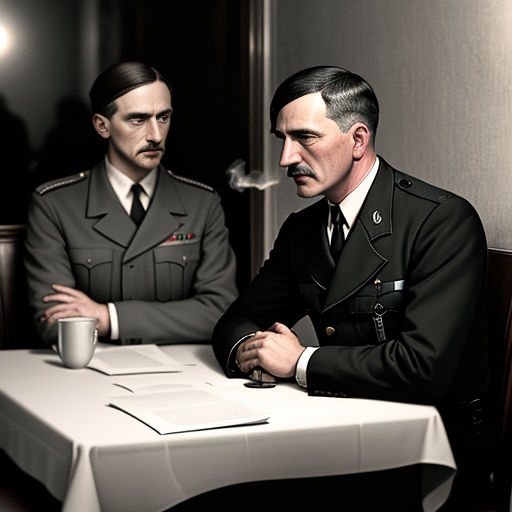
Hitler, a mere corporal, had been sent there to spy on the party but found himself agreeing with their nationalist ideology.

He quickly rose through the ranks, impressing his peers with his charisma and forceful speeches.

One night, Hitler met a man named Ernst Röhm, who would become an important ally in his rise to power.

Together, they formed the Sturmabteilung, or SA, a paramilitary group dedicated to protecting the party and intimidating its opponents.
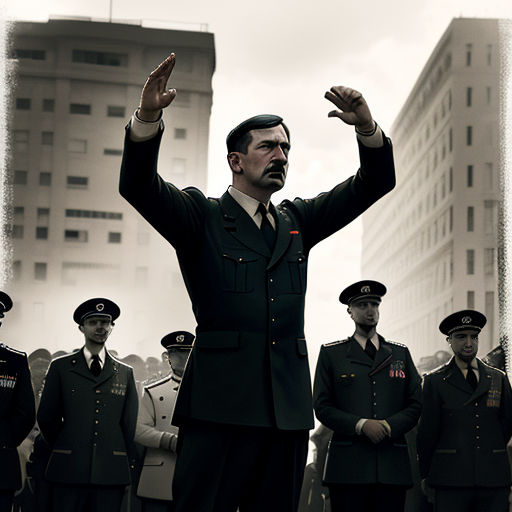
Hitler's popularity grew, and with it, the influence of the German Workers' Party.
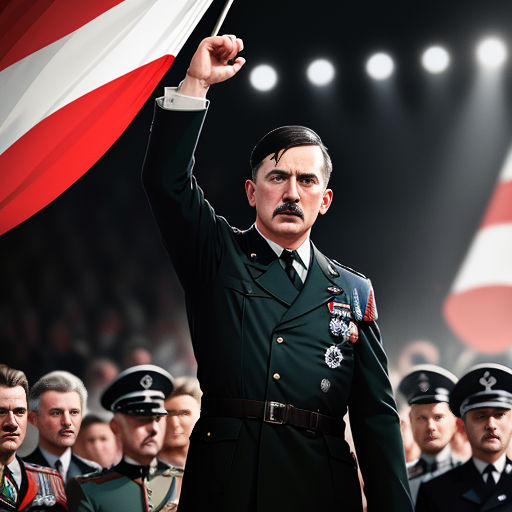
He rallied the masses with impassioned speeches, promising a brighter future for Germany.
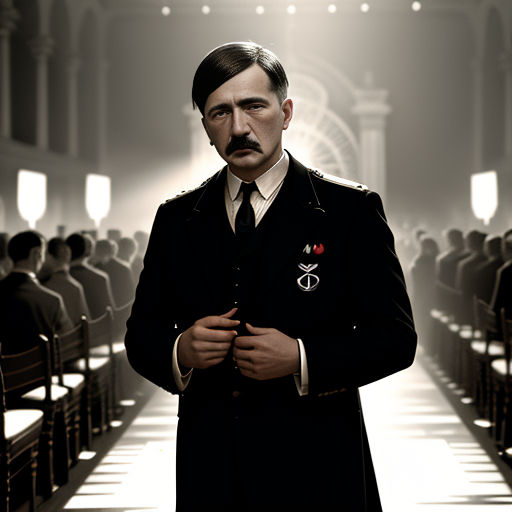
In 1921, Hitler became the leader of the party, which he renamed the National Socialist German Workers' Party, or the Nazi Party.

Hitler and Röhm's SA became more violent, clashing with communists and other political opponents in the streets of Berlin.
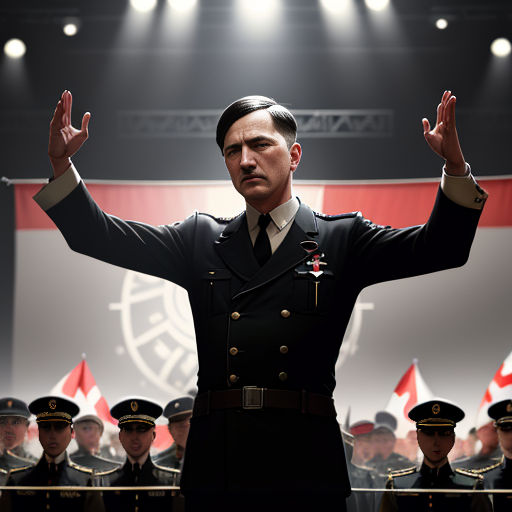
As the economic situation in Germany worsened, more people began to listen to Hitler's promises of a strong, prosperous Germany.

Hitler's charisma and the hope he instilled in the people made him a force to be reckoned with.
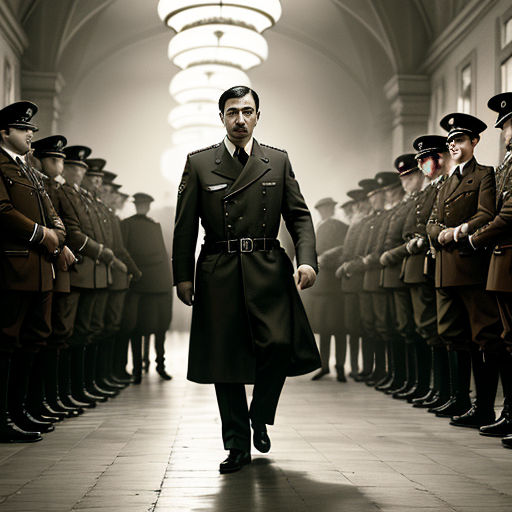
In 1923, Hitler and his followers attempted to seize power in the Beer Hall Putsch, but they were unsuccessful and Hitler was imprisoned.
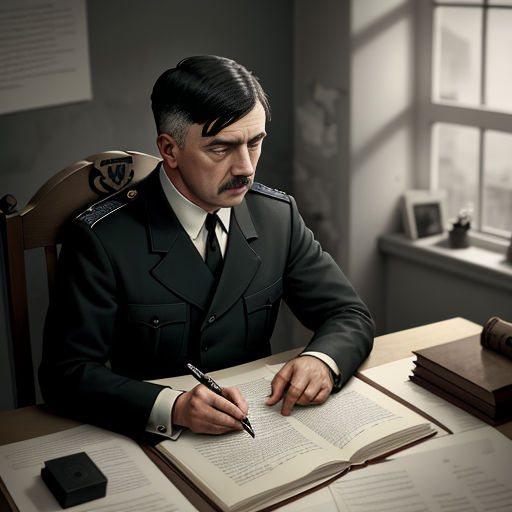
During his time in prison, Hitler wrote "Mein Kampf," outlining his political ideology and plans for Germany.
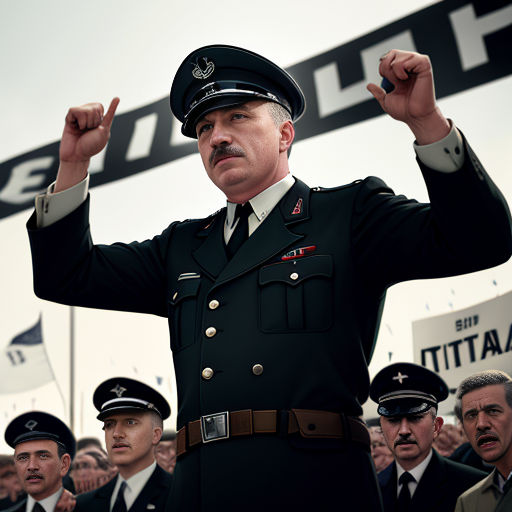
After his release, Hitler reestablished the Nazi Party and continued to attract followers with his fiery speeches and promises of a better future.

Hitler's influence grew and in 1933, he was appointed Chancellor of Germany.

He consolidated his power, suppressing opposition and implementing policies that reflected his nationalist and anti-Semitic beliefs.
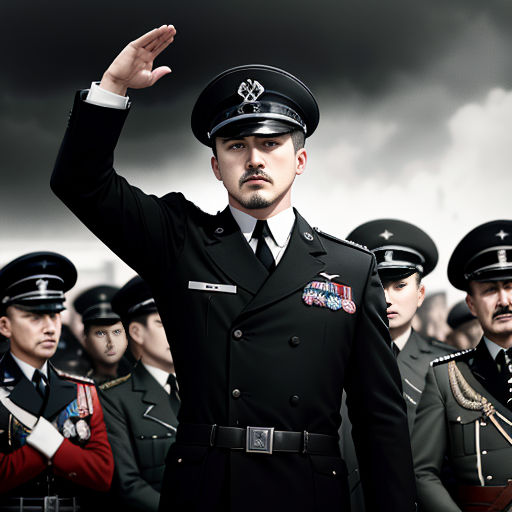
Hitler's dictatorship marked the beginning of the Second Reich, a period of intense nationalism and aggression.

Hitler's regime was marked by brutal repression, expansionist policies, and the systematic murder of six million Jews in the Holocaust.